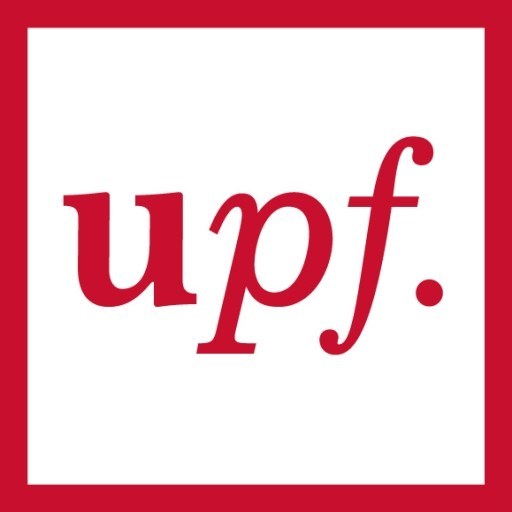The aim of this master's degree programme is to provide a solid base in theoretical and applied research knowledge and tools in immigration studies. This master can be a first stage to later apply to a doctoral programme or equivalent, and it offers a double degree itinerary with some European universities. This master is interdisciplinary and offers training in case and comparative studies, combining quantitative and qualitative techniques. It values methodologies in immigration research on issues related to the social and political agenda.
The course is aimed mainly at:
- University researchers wishing to investigate in-depth immigration and diverstiy.
- Young professionals and graduates wishing to specialize in immigration management.
- Experts and specialists, policy managers and public administrators in multiple levels of government.
- Social agents and members of organizations involved in immigration management
The master will provide a diploma on Immigration Management. It offers an interdisciplinary approach that leads to a research specialty, with solid instrumental and technical training. Students must take three compulsory common modules: Theory and Methodology, Law and Economics, and Politics and Society. They also have a variety of optional courses from which to choose, in accordance with the student's research and professional future plans.
Objectives
Throughout the master's, students will be trained in the use of theoretical, instrumental and practical tools by specialized teaching staff who are highly recognized in their field, be it research on immigration or another specialist area. There will also be debates, seminars, workshops and round tables to encourage discussion and socialize certain relevant aspects in decision making or research design, which contribute to the academic debate. The main objective is to train students with a focus on the guiding principles of the course: academic rationale, rigorous scientific standards and professionalized practical application.
The master's program is 60 ECTS. Modules I, II and III are compulsory common modules (10 ECTS each). Students must then choose three subjects (9 ECTS) among module IV optional courses. Finally, students will undertake compulsory research training (21 ECTS), from which 12ECTS correspond to the Research Seminar and 9ECTS to the Final Master Thesis.
The master is taught entirely in English.
Exceptionally and after the Master's Comission agreement, the student can choose to study on a part-time basis (2 years). The only condition is to register for at least 30 ECTS on the first year and develop the master thesis during the second year.
Module I, II and III courses are 5 ECTS. Module IV courses are 3 ECTS.
Module I. Theory and Methodology (10 ECTS)
- The Foundations of Immigration Policies (Ricard Zapata)
- Sources and Tools for the Analysis of Migrations (Xavier Ferrer)
Module II. Law and Economics (10 ECTS)
- The Legal Framework for Migrations (Aida Torres and Sílvia Morgades)
- Economics of Migrations (John Palmer)
Module III. Politics and Society (10 ECTS)
- Comparative Migration Policies (Blanca Garcés)
- The Welfare State and Public Policies (Zenia Hellgren)
Module IV. Optional courses (9 ECTS)
- Qualitative Research Methods (Evren Yalaz)
- Social psychological approaches to society and the individual (Verònica Benet-Martínez)
- The Challenges of Interculturalism (Àngel Miret i Gemma Pinyol - in Spanish)
- The External Dimension of Immigration Policies (Lorenzo Gabrielli)
- Law of Asylum (Silvia Morgades - in Spanish)
- Discourse Analysis, Racism and Immigration (Gema Rubio)
- Management of Religious Pluralism (Camil Ungureanu and Avi Astor)
- Citizen and democracy in the EU (Mariano Torcal)
- Labor Market and Employment Policies (Luis Ortíz)
- Migration and Society (Pau Baizán)
- Health and Inequality (Joan Benach)
- Administration of Immigration
- Immigration and Education
- Research Tools
- Media Communication and Immigration
- Network of Stakeholders
Requirements
- Official undergraduate degree/diploma (or a bachelor's degree, or, for foreign applicants, the equivalent qualification awarded by an accredited higher education institution) and the applicant's academic transcript with a record of the official training completed at the accredited institution and the average grade. The only applicants that will be considered for admission are those with degrees in the following academic fields of study: Health Sciences, Legal Sciences, Social Sciences, Humanities.
- Curriculum Vitae in English.
- A short letter of motivation stating the applicant's interest in following the master's programme (400 to 600 words).
- A photocopy of the accreditation of language levels (level B2.2)
- Two letters of recommendation (academics or professionals)
- A copy of your Identity Card or Passport.
- Proof of English language (level B2). English: official Cambridge certificates (FCE or higher), with results of 6.0 at IELTS or 100 at TOEFL (iBT), will be accepted, among others.
- Professional experience in any of the fields related to the master's programme.(optional)
- Research experience.(optional)
- Teaching experience. (optional)
- Additional academic training in areas related to the master's programme.(optional)
Want to improve your English level for admission?
Prepare for the program requirements with English Online by the British Council.
- ✔️ Flexible study schedule
- ✔️ Experienced teachers
- ✔️ Certificate upon completion
📘 Recommended for students with an IELTS level of 6.0 or below.
Scholarships
- GRAL - General scholarships for students enrolled on post-compulsory studies.
- MATRC - Financial credential for the purposes of processing university enrolments without prior payment of the public prices for the academic services.
- UPF - Tuition fee scholarship for university master's degree students
- Global Education





